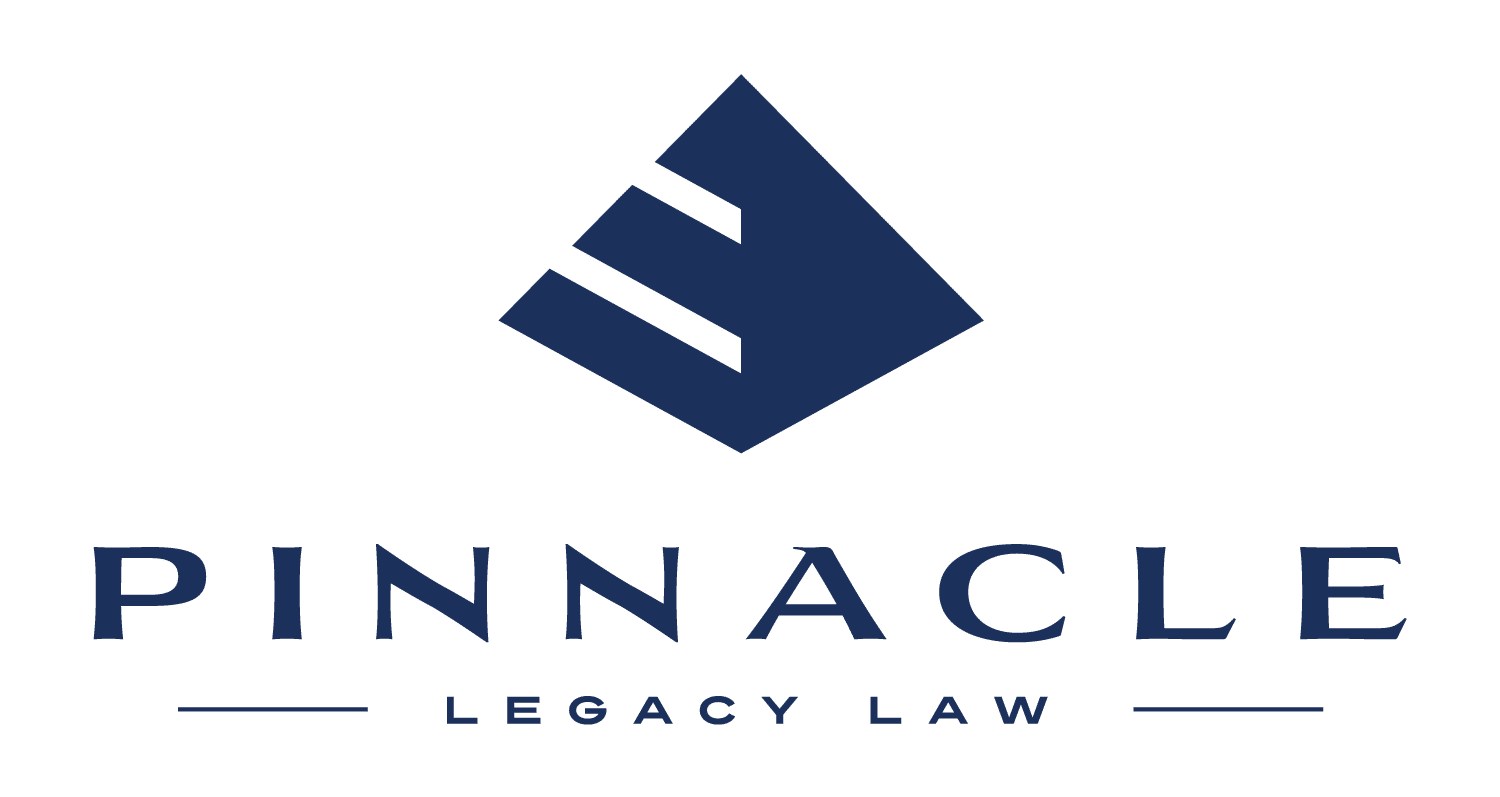Pinnacle Legacy Law
Legacy Planning
Powerful Protection
Legacy planning is a comprehensive process that involves identifying and achieving your personal, family, and charitable goals while maximizing the impact and value of your wealth beyond your lifetime. Working with an experienced estate planning attorney like those here at Pinnacle Legacy Law can create a legacy plan that reflects your values and achieves your goals.
What Legacy Planning Does and Doesn’t Do:
Helps you define your legacy: Legacy planning helps you identify what you want your legacy to be, both for your family and for the world.
Helps you preserve your wealth: Legacy planning helps you identify ways to preserve your wealth for future generations, including minimizing taxes and protecting assets from creditors.
Helps you pass on your values: Legacy planning helps you pass on your values to your children and grandchildren, ensuring that your legacy lives on beyond your lifetime.
Helps you support causes you to care about Legacy planning helps you identify charitable causes that you are passionate about and create a plan for supporting them both during and after your lifetime.
Doesn’t focus only on financial assets: Legacy planning is about more than just financial assets. It also includes intangible assets like family values, stories, and traditions.
Doesn’t ignore tax planning: While legacy planning is not solely about minimizing taxes, it does involve tax planning strategies to help maximize the impact of your wealth.
Doesn’t create a one-size-fits-all plan: Legacy planning is highly personalized and tailored to your unique goals and values. There is no one-size-fits-all approach.
Doesn’t only focus on the end of life: Legacy planning is not just about what happens after you pass away. It also includes planning important life events like education, retirement, and healthcare.
Here are some benefits of legacy planning:
Helps you define your legacy: Legacy planning helps you clarify your values, beliefs, and life goals. This can help you develop a more meaningful and purposeful life, both now and in the future.
Preserves your wealth: Legacy planning can help you protect and preserve your wealth for future generations. This includes minimizing taxes, creating trusts, and other strategies to help ensure your assets are distributed according to your wishes.
Passes on your values: Legacy planning helps you pass on your values, traditions, and beliefs to your children and grandchildren. This can help create a sense of continuity and connection between generations.
Provides for charitable giving: Legacy planning can help you support charitable causes that are important to you, both during and after your lifetime. This can help you leave a lasting impact on the world.
Reduces stress on your loved ones: Legacy planning can help reduce stress on your loved ones by providing clear instructions and guidance on how your assets should be distributed after passing. This can help avoid family conflicts and ensure your wishes are fulfilled.
Helps you prepare for life events: Legacy planning can help you prepare for important life events, such as retirement, illness, or incapacity. This can help ensure that you are prepared for whatever life may bring.
Here are some important things to know about legacy planning:
It’s a comprehensive process: Legacy planning involves more than creating a will or trust. It’s a comprehensive process that involves identifying your values, beliefs, and life goals and developing a plan to achieve them.
It’s highly personalized: There is no one-size-fits-all approach to legacy planning. Your plan should be tailored to your unique goals, values, and circumstances.
It’s not just about financial assets: Legacy planning involves more than just financial assets. It also includes intangible assets like family stories, traditions, and values.
It can involve tax planning: While legacy planning is not solely about minimizing taxes, it does involve tax planning strategies to help maximize the impact of your wealth.
It’s an ongoing process: Legacy planning is not a one-time event. It’s an ongoing process that should be reviewed and updated regularly as circumstances change.
It can involve charitable giving: Legacy planning can include charitable giving as a way to leave a lasting impact on the world and support causes that are important to you.
It can involve communication with your family: Legacy planning can involve communicating with your family about your wishes and values. This can help avoid conflicts and ensure your legacy is carried out as intended.
